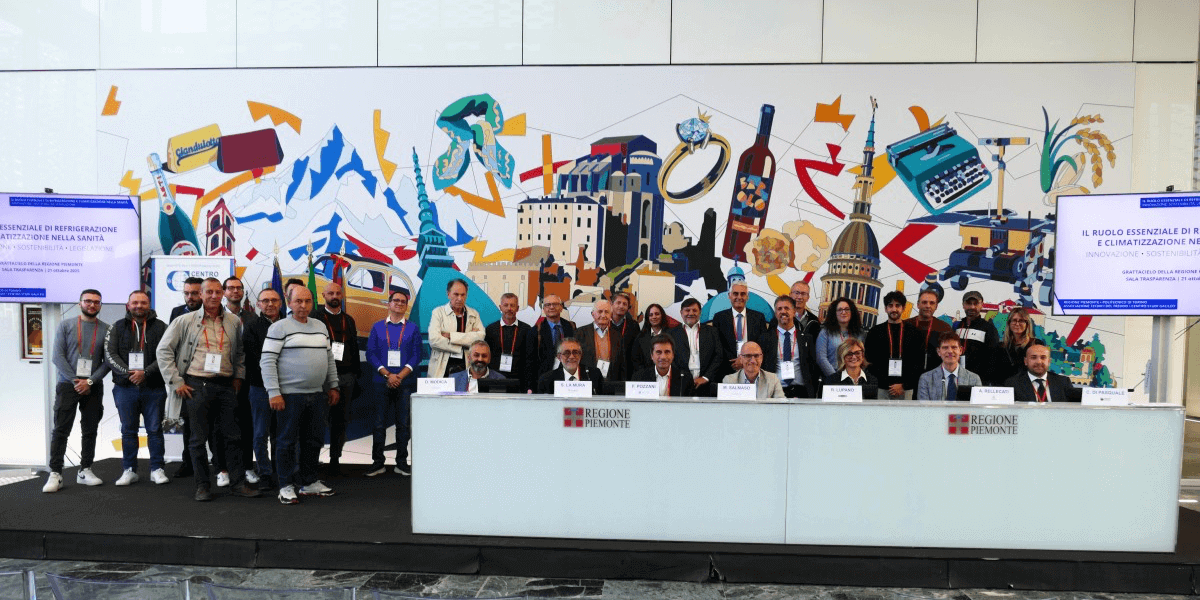Refrigeration and air conditioning in healthcare: innovation and sustainability at the center of discussion in Piedmont
The conference held in Piedmont highlighted the key role of refrigeration and air conditioning in the healthcare sector, focusing on innovation, sustainability, and regulatory frameworks.

Ensuring safe, controlled, and comfortable environments within healthcare facilities requires air conditioning and refrigeration technologies that operate reliably and continuously. From the preservation of medicines and vaccines to maintaining sterile environments and ensuring thermal comfort for patients and staff, HVAC-R systems play a vital role in public health.
These topics were the focus of the conference “The essential role of refrigeration and air conditioning in healthcare – Innovation, Sustainability, Legislation”, which brought together institutions, academia, and industry representatives at the Sala Trasparenza of the Regione Piemonte skyscraper.
Organized by the Health Department of the Piedmont Region, the Polytechnic University of Turin, the Centro Studi Galileo, and the Italian Association of Refrigeration Technicians (ATF), the event emphasized that truly modern healthcare must integrate technical expertise, conscious design choices, and coherent regional policies.
Integrated expertise for sustainable healthcare
The opening session reinforced the need to strengthen dialogue between institutions, universities, and HVAC-R professionals. Designing and managing systems in healthcare facilities requires highly specific skills—not only in choosing refrigerants or air handling units, but also in ensuring safety, maintenance, efficiency, and sustainability throughout the entire system lifecycle.
In this context, the key role of Centro Studi Galileo was highlighted for its contribution to technical training and the dissemination of professional expertise at both national and international levels.
Technologies, solutions, and case studies
The technical sessions explored some of the most relevant topics for present and future healthcare facilities, including:
- low-GWP refrigerants and plant safety requirements,
- energy efficiency strategies and heat recovery systems,
- predictive maintenance and digital system management,
- the application of Ecodesign, F-Gas, and EN 378 regulations in the healthcare sector.
The concluding discussion underlined a crucial point: technological innovation already exists, but to become widespread practice, it requires training, consistent policies, and long-term collaboration between public and private stakeholders.
Piedmont as a hub for the healthcare cold chain
The debate also highlighted a strategic vision: Piedmont possesses the technical and industrial expertise to become a territorial hub for the healthcare cold chain, integrating the production, transport, and storage of medicines and medical devices.
An opportunity that enhances the region’s long-standing industrial tradition while looking toward the future of the healthcare sector.


